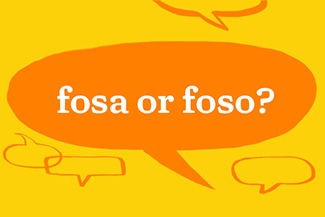
Spanish words of the week: fosa or foso?
Today we’re digging into the commonest meanings of another pair of potentially confusable Spanish nouns. These are fosa (feminine) and foso (masculine). The two words have rather similar meanings in that they both refer to pit- or trench-like spaces. However, the feminine… Read More







